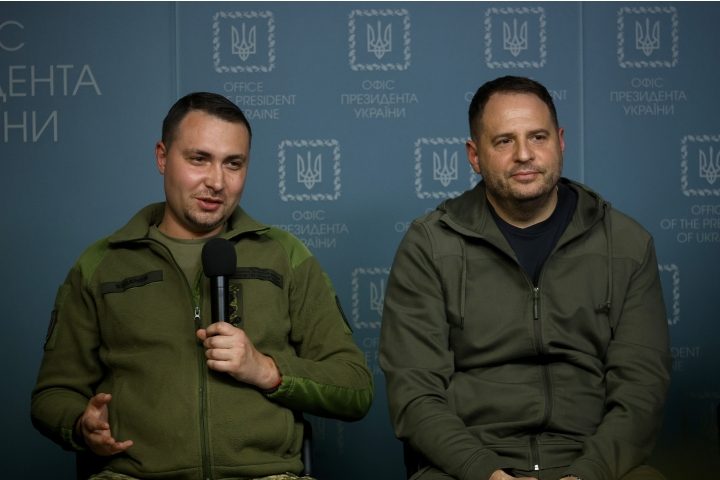
Ukraine’s counteroffensive is not going according to plan, Kyrylo Budanov, head of the Kyiv Main Intelligence Directorate, acknowledged in an October 12 interview with the Ukrainskaya Pravda newspaper.
The spy chief admitted that the Ukrainian Armed Forces were not merely behind schedule but had totally “fallen out of it” after various things did not go as “smoothly” as the Kyiv regime had hoped. Budanov did not provide more details as to what “falling out of schedule” meant, maintaining that everyone should “draw their own conclusion.”
Notably, Budanov had claimed in an interview with the same outlet in February that Kyiv had every opportunity to end the current Russian-Ukrainian conflict in 2023. Nonetheless, Budanov revealed that the situation had changed. Again, he did not provide details about reasons why, stating that “most of the explanations for this are state secrets.”
Furthermore, Budanov told Ukrainskaya Pravda that the continued provision of arms and other aid to the Ukrainian army could potentially be obstructed by a conflict in the Middle East, alluding to recent tensions between Israel and Hamas fighters in Gaza.
“If that conflict is limited in time to a few weeks, then, in principle, there is nothing to worry about,” Budanov said. “However, if the situation drags on, it is quite clear that there will be some problems with the fact that it will be necessary to supply weapons and ammunition not only to Ukraine,” the spy chief elaborated, pointing out that the world is “approaching global war pretty quickly.”
Similarly, Ukrainian president Volodymyr Zelensky acknowledged difficulties with Ukraine’s counteroffensive, which started in June and was poised to become a platform for Kyiv to attain its much-touted victory against Moscow. In September, Zelensky disclosed that the operation had slowed down owing to Russian air superiority, slamming Kyiv’s Western supporters for not providing Ukraine’s forces with requisite weapons.
Western military officials have confessed that Russian defenses have proven more hardy than anticipated. For example, the chief of the U.K.’s Defense Staff, Tony Radakin, declared last month that the Russian-Ukraine conflict could be prolonged for “some time” and that Western hopes about what Kyiv’s forces could attain in the near future should be “adjusted.”
Meanwhile, Russian President Vladimir Putin proclaimed last week that the Ukrainian military had lost as many as 90,000 troops since its counteroffensive in June. Putin claimed that Kyiv had supposedly also lost nearly 1,900 armored vehicles and some 557 tanks during that time.
On October 13, Ukraine’s Deputy Defense Minister Natalya Kalmykova divulged that hundreds of thousands of Ukrainian men were avoiding military draft amid the country’s ongoing mobilization, adding that Kyiv was working on legislation that would “help settle this issue.”
Speaking to Ukraine’s Rada TV, Kalmykova said that “unfortunately, we see a lot of situations … when people don’t want to and plan to avoid mobilization.” Kalmykova posited that the number of draft dodgers was equivalent to “tens, hundreds of thousands of people.”
Speaking to Ukrainskaya Pravda last week, Interior Minister Igor Klimenko cautioned that Kyiv was mulling ways to penalize those who have left Ukraine to dodge the draft, stating that they would likely face administrative fines. Those who have used counterfeit papers or unlawfully secured documents to enable them to leave Ukraine could be jailed.
Recently, the Kyiv regime has reportedly been contemplating the prospect of recalling men of military age who have fled the country to serve in the military. In late August, a senior lawmaker from Zelensky’s ruling party, David Arakhamia, suggested that Kyiv could seek the extradition of draft dodgers from the EU.
Various EU states, including Germany, Austria, Hungary, and the Czech Republic, have already replied that they would not send draft dodgers in their countries back to Ukraine.
Since Russia launched its military operation in Ukraine in February 2022, Ukrainian recruitment officers have constantly staged raids in public spaces and on the streets. Local media outlets have reported on incidents in which officials have forcefully detained those who refused to join the army.
Also, Putin claimed on October 13 that Ukrainian corruption was the reason why some of the weapons sent to Ukraine landed up in the hands of Hamas militants.
“I doubt that there were deliveries of weapons from Ukraine, but I have no doubt there were leaks of weapons from Ukraine,” Putin stated at a press conference in the Kyrgyz capital of Bishkek.
“We know the level of corruption in Ukraine is very high. The black market arises when there are many who want to buy, and in Ukraine there are many who want to sell,” he continued, noting that Ukrainians were “definitely selling” weapons on the international market via countries in Africa and the Middle East.
“Why, they even sell [weapons] to Russia, and if they can sell them to Russia, nothing surprises me anymore,” the Russian president added.
The issue of Hamas using arms that the United States and its allies had deployed to Ukraine was first broached by former Russian President Dmitry Medvedev, who claimed such equipment was “being actively used in Israel.”
In turn, Kyiv’s military intelligence accused Russia of sending Western arms captured in Ukraine to Hamas in a “false flag” operation meant to tarnish Kyiv’s images in the eyes of its supporters.
For its part, Israel has neither verified or dismissed Medvedev’s weapons claim, but disavowed Ukrainian allegations of Russian participation in the Hamas attack as “complete nonsense.”
Hamas militants fired hundreds of rockets into Israel last Saturday, October 7, before conducting rampages in surrounding Israeli settlements, villages, and towns. Israeli authorities said over 1,300 people died in the surprise attack while West Jerusalem has declared “war” against Hamas.
Regarding the rising Israeli-Arab conflict, Putin mentioned that while Israel had experienced an unprecedented assault, its response has been “quite brutal.”
Also, the Russian leader offered to serve as mediator between Israel and the Palestinians, due to Moscow’s “very good relations” with Israel, as well as long standing ties with the Palestinians, “so no one can suspect that we want to play some kind of games.”



